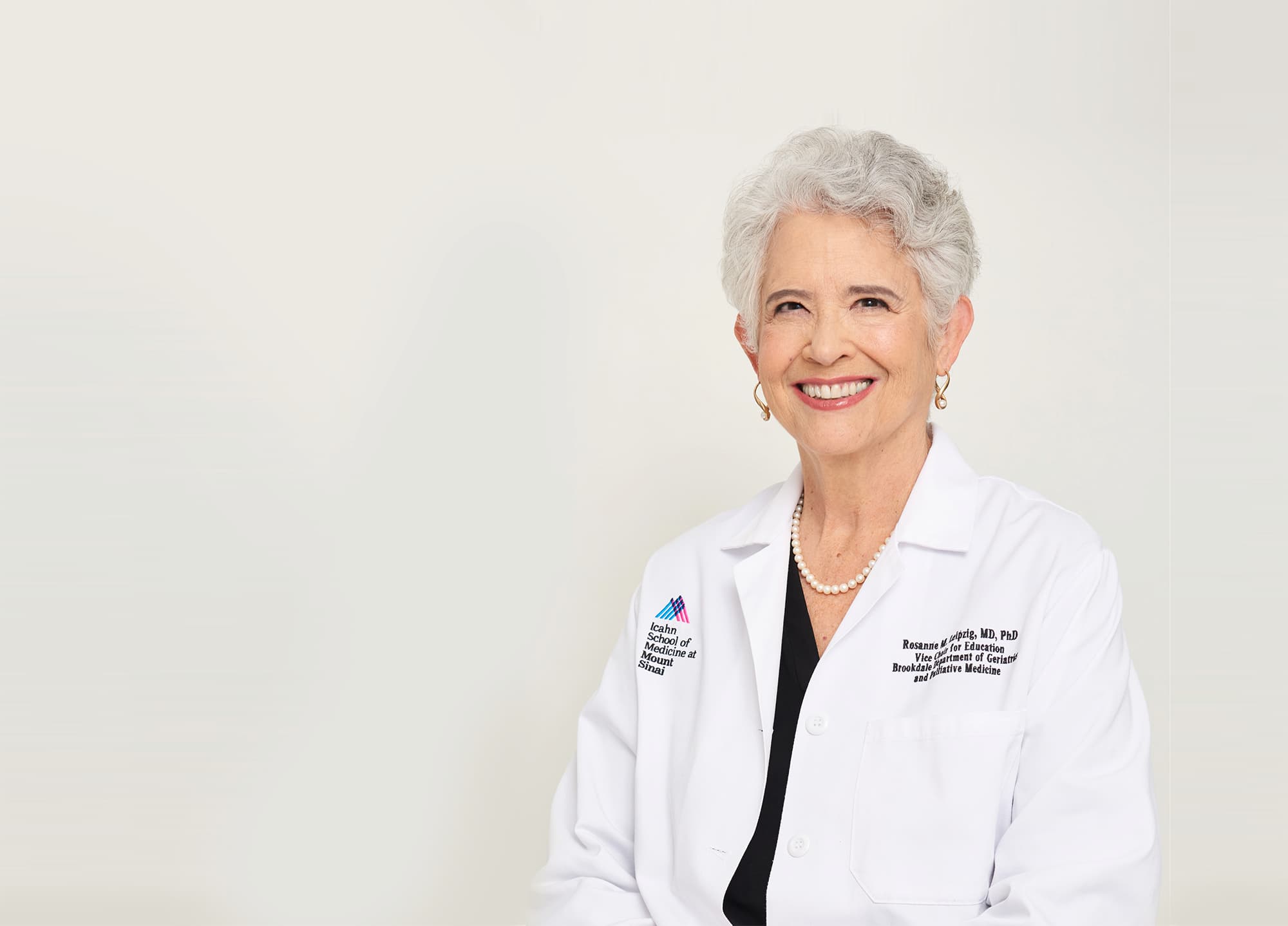As part of our new blog series, The Empowered PCP, agilon health is sitting down with powerful voices in the primary care physician (PCP) community to learn how they’re creating healthier communities through value-based care and to hear their perspectives on empowering other PCPs.
Today, we are speaking with one of the most experienced and respected voices in the field of senior care: Roseanne Leipzig, M.D., Ph.D., who practices geriatrics and palliative care at Mount Sinai in New York, NY, and is the author of the upcoming book Honest Aging: An Insider’s Guide to the Second Half of Life. As you’ll read below, the ability to practice value-based care is a key pillar in helping senior patients get the most out of life, both quantitatively and qualitatively.
Not long ago, a new patient came to see Dr. Roseanne Leipzig at her practice in New York. This was not just any patient—it was an EGOT winner (meaning, someone in entertainment who’s won an Emmy, a Grammy, an Oscar and a Tony over the course of their career)—but the complaint this showbiz legend shared with Dr. Leipzig was an all-too-common one.
“He basically said, ‘My doctor doesn’t listen to me anymore,’” Dr. Leipzig recalls. “He had real things to be concerned about, but basically, because the doctor didn’t know what to do, he just ignored this patient’s concerns.”
Dr. Leipzig, in turn, began her new patient’s intake by doing the opposite: Rather than ignoring his concerns, she sat and listened to him for an entire half-hour. That lengthy amount of time wasn’t special attention she showered upon him just for being famous; it was, in fact, standard practice for a doctor who eschews the mores of fee-for-service healthcare.
“I give my new patients 30 minutes to just talk about whatever they want to talk about,” Dr. Leipzig explains. “I can do that because, in our practice, we have 30 minutes for a follow-up appointment and 60 minutes for a new patient—which is never heard of in fee-for-service.”
Why so much time devoted just to listening? As Dr. Leipzig (who served for five years on the U.S. Preventive Services Taskforce) sees it, “The first thing to find out about a patient is what matters most to them—because a lot of what matters to the doctor doesn’t really matter to the patient.”
Similarly, a lot of what matters to a patient—especially the ability to live a life free of frequent, unnecessary tests and screenings that offer little or no proven medical benefit—often isn’t what’s deemed important in fee-for-service healthcare. One of Dr. Leipzig’s biggest critiques of the fee-for-service model, in fact, is that “what we end up doing for some patients is having a lot of treatment burden, and that’s not really how they’d like to be spending their time: Get this test, get that test and if that test is positive, then get this other test.” And yet, services such as annual endoscopies, colonoscopies, pap smears and more are routinely ordered for patients 65 and older, when—as both Dr. Leipzig and numerous studies have noted —”a lot of times, none of that matters at all as far as what’s going to happen in their lives.”
If Dr. Leipzig’s focus as a PCP for senior patients isn’t on testing just for the sake of testing, what does she pay attention to? Here are just three commonly and critically overlooked areas in senior care—and why she believes a value-based care model is best designed to address them.
Medication management
As Dr. Leipzig puts it, “I’m in charge of the medications nobody else is looking at and adjusting them for age and interactions, because a lot of folks are not looking at the drug interactions, which are legion, and adjusting for kidney function, which changes as you get older.” Because taking the time to review a patient’s medications isn’t a service doctors can charge a fee for, however, it’s often a neglected part of senior care.
Pain management
Dr. Leipzig says that reducing pain is critical for the #1 prescription for healthy aging: Being able to do things. “If you look at what older people really want, function rules. And if an older person can’t move around—COVID was a good example of this—they really quickly de-condition,” Dr. Leipzig points out. “So if we ignore things that keep people from being active, then we’re contributing to them getting worse. The value-based-care programs I’ve worked with have made it easier to get physical therapy for patients than straight Medicare.”
“Quarterbacking” patient care
Above all, Dr. Leipzig believes her role is to “oversee all of a patient’s medical care and make sure that it all makes sense for that patient at that time—to determine what is appropriate annually, what actually needs to be done on a more regular basis—and here’s the thing: A lot of it has nothing to do with doctors. It has to do with things like making sure your smoke detector works.”
By being a source of support, instead of just a source of referrals, Dr. Leipzig believes she’s practicing senior care in the right way. It may seem counterintuitive in a fee-for-service world, but curtailing unnecessary clinical visits so that her senior patients can enjoy life more is truly the best medicine. As she puts it, “It’s not about limiting care. It’s about getting the appropriate care.”
Contact for media inquiries
[email protected]Up Next.

Blog Jul 21, 2022 | Article
Empowered PCP: Dr. Natalie Williams on Health Disparities and Improving Patient Care
As a physician, you most likely have observed the impact of the social determinants of health (SD...




